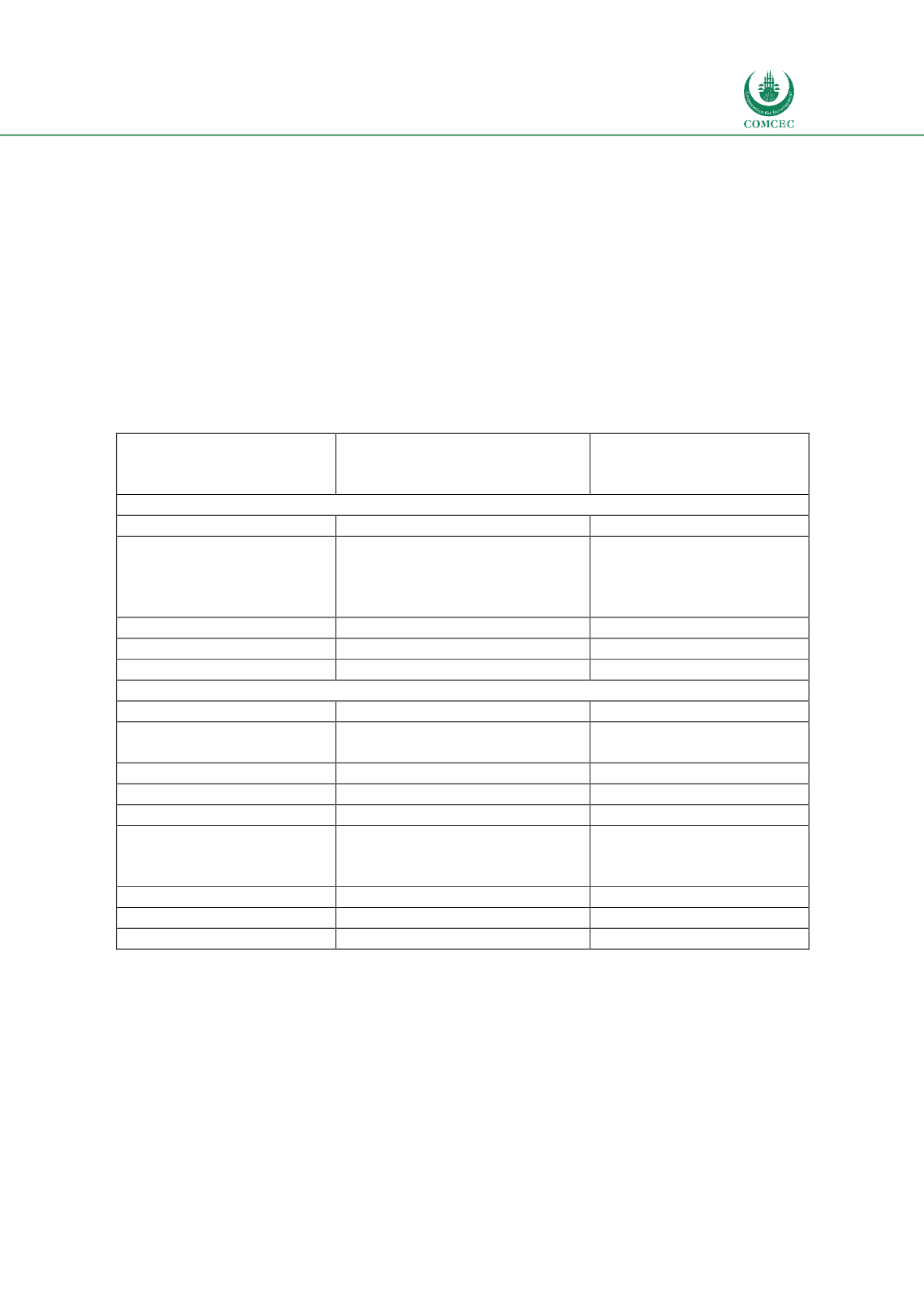

Enhancing Public Availability of Customs Information
In the Islamic Countries
83
Information Availability: General State of Play
Implementation of WTO TFA, and Comparison with Best Practice
Bangladesh ratified the WTO TFA on September 27
th
, 2016. The latest communication from
Bangladesh to the WTO Committee on Trade Facilitation on the notification of category
commitments under the Agreement on Trade Facilitation circulated on 27 February 2018
(document no: G/TFA/N/BGD/1) indicated that most of the first four articles of the agreement,
which focus on information availability, are included in Category A (implemented in principle as
of now) or Category B (implemented with a defined time lag). This relatively ambitious stance
indicates that Bangladesh is committed to improving the public availability of Customs and trade
information, and indeed has already taken significant steps forward in this regard. For more
detail, a full breakdown of the first four articles of the TFA and their implementation status in
Bangladesh is provided below.
Table 4: Detailed breakdown of TFA implementation by Bangladesh.
Provision
Heading/Description
Category and Indicative
date for implementation (as
per Member’s notification)
Article 1.1 Publication:
Article 1.1.1 (a)…..1.1.1.(b)
A
Article 1.1.1 (c)
Fees and charges imposed by or
for governmental agencies on or
in connection with importation,
exportation or transit
B (20 February 2020)
Article 1.1.1 (d)…..1.1.1.(g)
A
Article 1.1.1 (h)
Procedures for appeal or review
B (20 February 2020)
Article 1.1.1(i) – 1.1.1(j)
A
Article 1.2 Information available through Internet:
Article 1.2.1(a)-1.2.1(b)
A
Article 1.2.1(c)
Contact information on its
enquiry point
B (20 February 2022)
Article 1.2.2-1.2.3
A
Article 1.3
Enquiry Points
C (To be determined)
Article 1.4
Notification
B (20 February 2020)
Article 2.1
Opportunity to Comment and
Information before Entry into
Force
B (20 February 2020)
Article 2.2
Consultations
B (20 February 2020)
Article 3
Advance Rulings
A
Article 4.1-4.5
A
Source: Author based on information from WTO.
To provide context for the detailed discussion to follow, we use two data sources to provide a
“big picture” comparison between Bangladesh’s performance and what could be considered
international best practice. To proxy the latter, we use Singapore—an acknowledged global
leader in trade facilitation. Concretely, we analyze Bangladesh’s performance relative to
Singapore on key dimensions of the TFIs related to information availability, and then do the
same using the UNGS data.
















